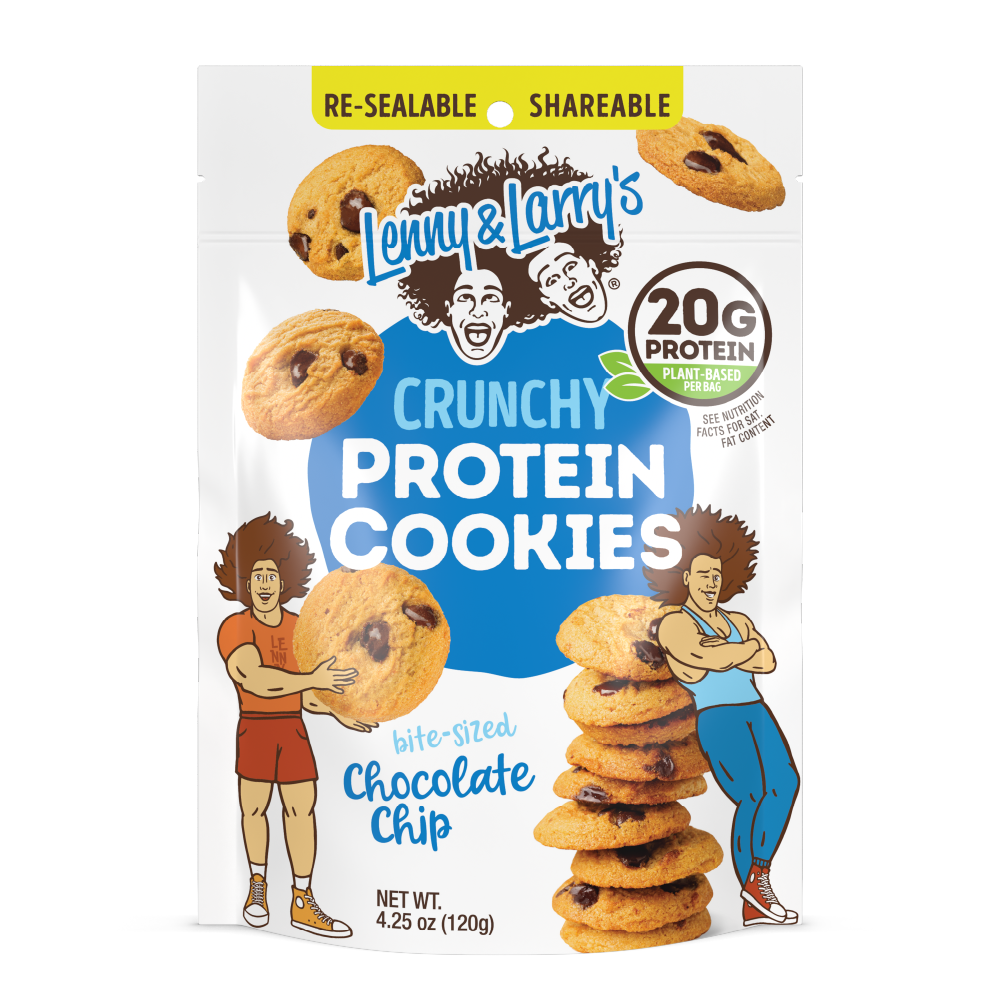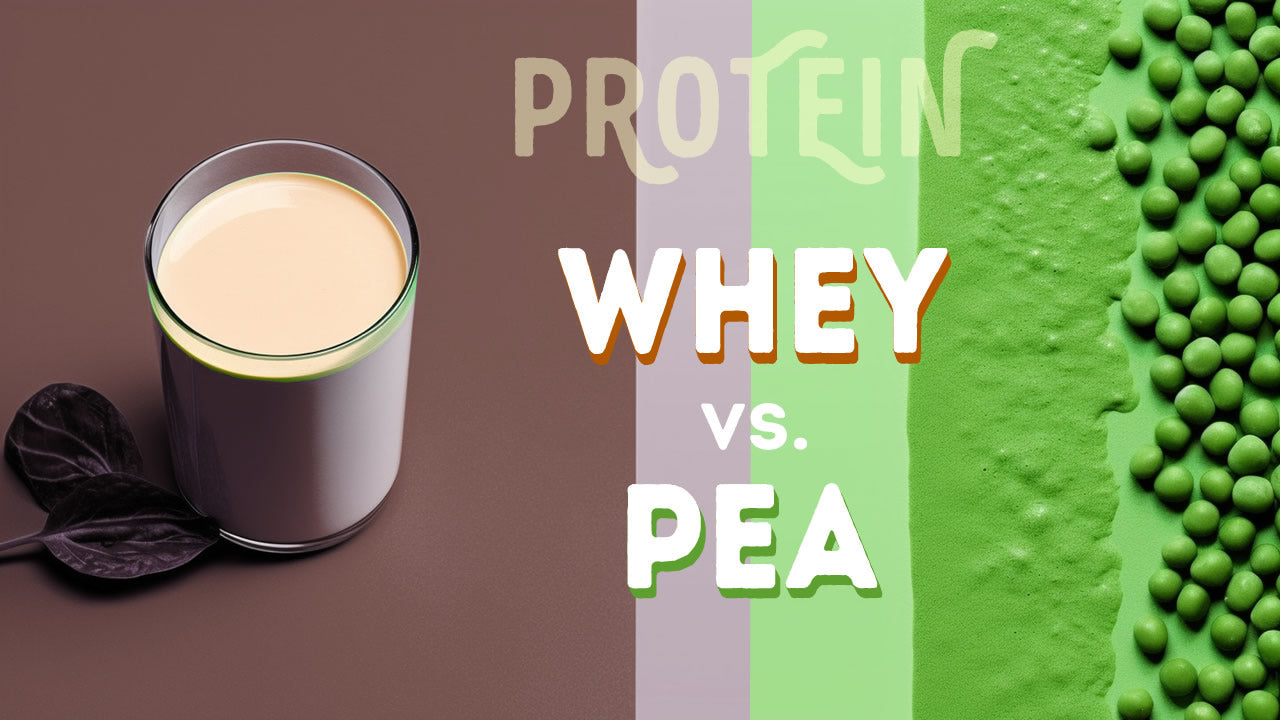We all rely on protein to support muscle growth, recovery, energy, and overall body function. And the type of protein can influence how your body feels and performs.
7 Points of Comparison for Pea vs. Whey Protein
Whey protein has long dominated the market, but plant-based alternatives (e.g. pea protein) is here and gaining traction.
The shift isn’t just a trend.
It reflects growing awareness about allergens, digestion, sustainability, and food quality. You don’t need to settle for a second-best option. Pea protein continues to outperform whey on multiple fronts, from gut health to versatility in the kitchen.
Here's 7 powerful reasons why choosing pea protein might be the smartest move you make this year:
1. Which Passes the Allergens Test?

Pea protein is free from dairy, lactose, soy, and gluten.
Pea protein comes from yellow split peas. It’s hypoallergenic, making it a cleaner, safer option if you deal with food sensitivities or digestive issues.
Whey protein is a dairy derivative and can trigger reactions ranging from bloating to full lactose intolerance. If you’ve ever felt gassy or uncomfortable after a protein shake, switching to pea protein could help eliminate the cause.
WINNER: Pea Protein
2. Which is Easier on the Gut?

Pea protein is naturally low in FODMAPs and doesn’t contain lactose.
You’ll notice that pea protein digests smoothly and doesn’t weigh you down. It’s naturally free from lactose and low in fermentable carbs, so your gut stays calm after consumption.
Digestive discomfort is one of the most common complaints about whey. This difference matters if you want your protein working for you, not against your stomach.
WINNER: Pea Protein
3. Which is More Environmentally Responsible?

Sourced from yellow peas, a sustainable crop.
Pea protein production uses less water, creates fewer emissions, and improves soil health. It's derived from a sustainable crop that supports environmentally conscious farming.
This matters because whey comes from industrial dairy systems that generate a significant carbon footprint. If you care about where your food comes from, pea protein aligns better with your values.
WINNER: Pea Protein
4. More Iron-Rich Nutrition.

Pea protein is a significant source of plant-based iron.
Pea protein provides a solid boost of iron (often over 30% of your daily needs per serving). It supports oxygen circulation, which helps energy levels and skin vibrancy.
You won’t get that from whey. It contains almost no iron, which means it won’t help prevent fatigue or support your body’s natural functions the way pea protein can.
Read More: The Latest Benefits of Iron »
WINNER: Pea Protein
5. Which is Better for Muscle Gains Without Bloat?

Pea protein contains all 9 essential amino acids, including a solid BCAA profile.
Pea protein contains all nine essential amino acids and a strong dose of BCAAs like leucine and valine. You’re able to build muscle effectively.
Whey is NOT the only option for gains. Pea protein proves that you don’t need an animal product to support strength and recovery.
WINNER: Pea Protein
6. Which is Naturally Cholesterol-Free?

Pea protein contains zero cholesterol and is extremely low in saturated fat.
Pea protein fits easily into heart-conscious diets. It supports wellness without sneaking in hidden dietary risks.
Whey may contain trace cholesterol depending on the source. If you're tracking your macros and thinking long-term, pea protein offers a cleaner nutritional profile.
WINNER: Pea Protein
7. Which has More Culinary Versatility?
Whey protein powder is a bit hard to integrate into anything other than smoothies. Pea protein powder (on the other hand) has a more neutral flavor, heat-stable, and blends well in both savory and sweet dishes.
Pea protein dissolves well, holds up in heat, and brings a neutral flavor to recipes. You can blend it, cook it, or bake with it without curdling or clumping.
This versatility lands it on the list because whey protein often struggles outside of smoothies. Pea protein gives you more room to experiment with real food without sacrificing nutrition.
WINNER: Pea Protein
Way To Go Pea Protein!
And there's no compromise on nutrition, taste, or performance to go plant-based.
Pea protein offers a cleaner, more digestible, and more sustainable option (without sacrificing muscle support or flavor flexibility).
It might be time to rethink what you put in your shaker.
 Lenny and Larrys
Lenny and Larrys
